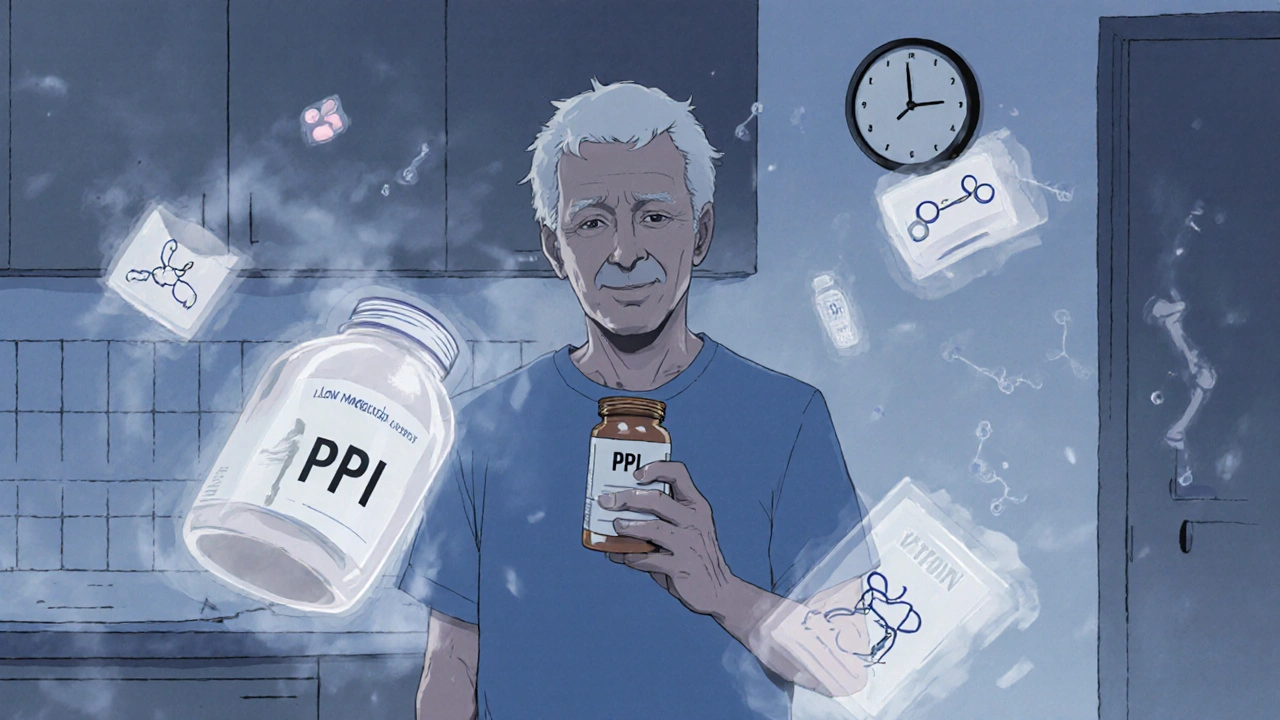Acid Reflux Medication: What Works, What Doesn't, and What You Need to Know
When you're dealing with acid reflux medication, drugs designed to reduce stomach acid and relieve heartburn. Also known as GERD treatment, these medications are among the most commonly prescribed in the U.S.—but not all are created equal. Many people pop pills daily without knowing how they work, what side effects they carry, or whether they’re even necessary long-term.
There are three main types: proton pump inhibitors, powerful drugs that shut down acid production at the source, like omeprazole and esomeprazole; H2 blockers, slower-acting drugs that reduce acid by blocking histamine receptors, such as famotidine and ranitidine; and antacids, fast-acting but short-lived options that neutralize acid on contact, like Tums or Rolaids. Each has a different role. PPIs are for daily, persistent reflux. H2 blockers work well for occasional flare-ups. Antacids? They’re for quick relief—nothing more.
Here’s the catch: long-term use of PPIs has been linked to nutrient deficiencies, bone loss, and even kidney issues in some studies. That’s why doctors now recommend using the lowest dose for the shortest time possible. Many people don’t realize their reflux might be triggered by diet, weight, or even how they sleep—not just stomach chemistry. That’s where real change happens. You can’t medicate your way out of eating late at night or lying down right after meals.
What you’ll find in this collection isn’t just a list of pills. It’s a look at what actually works behind the label. We break down how these drugs compare to each other, what side effects rarely make it onto the bottle, and how some people manage reflux without any medication at all. You’ll see real comparisons between brands and generics, what recent data says about safety, and how to spot when you might be overmedicated. This isn’t about fear—it’s about control. You deserve to know what’s in your body, why it’s there, and whether you still need it tomorrow.

Proton Pump Inhibitors: Long-Term Risks and When to Stop
Proton pump inhibitors help with heartburn and ulcers, but long-term use can cause serious side effects like bone fractures, low magnesium, and B12 deficiency. Learn when to stop and how to do it safely.
